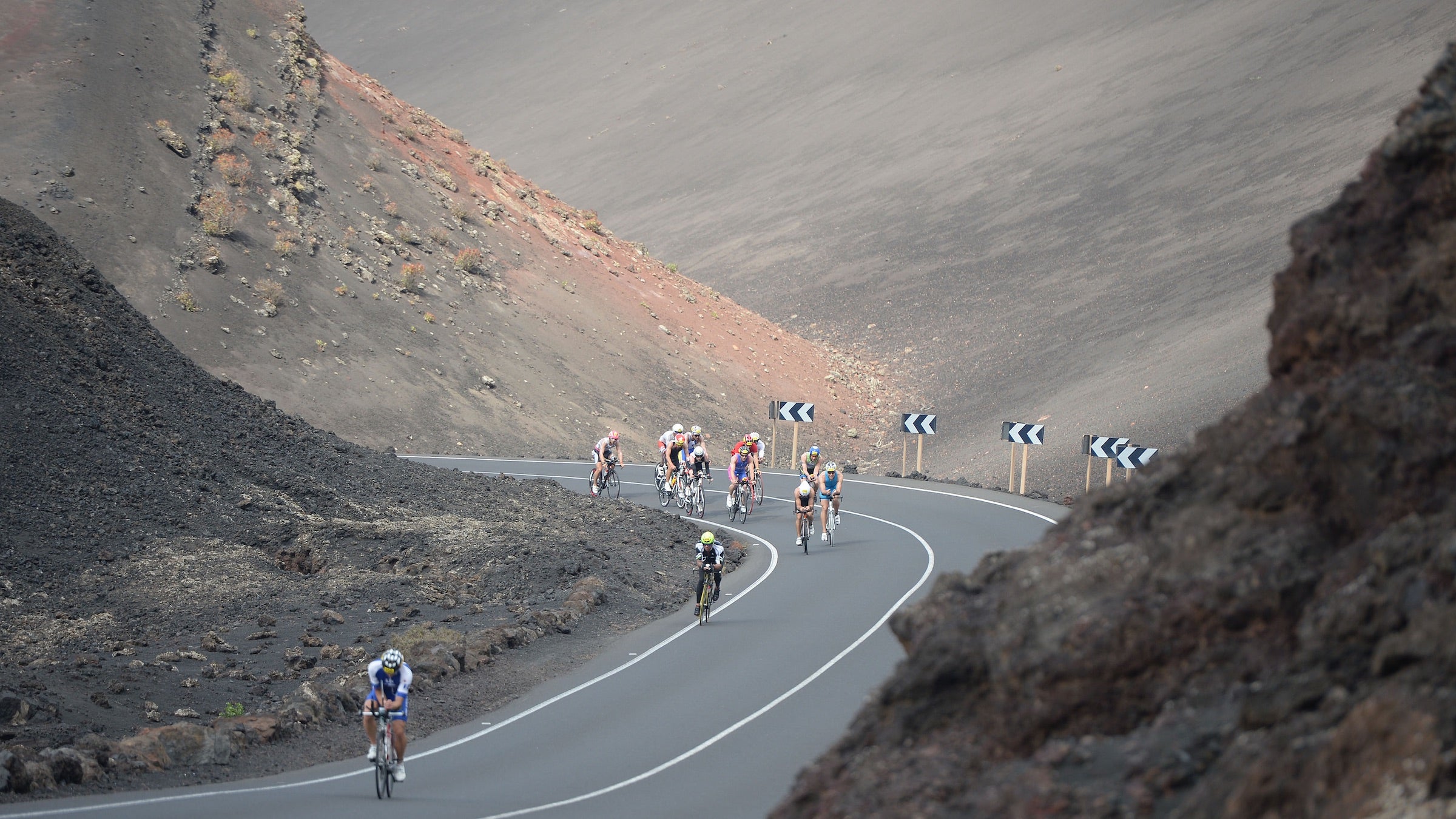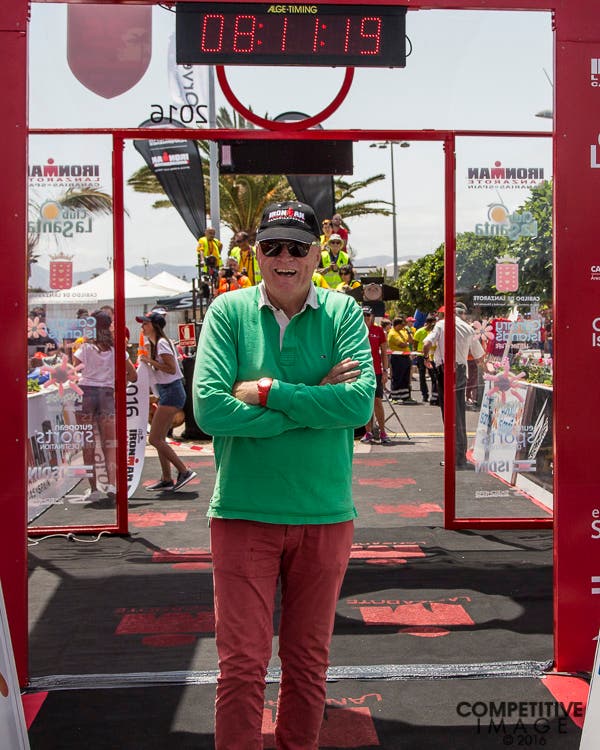Recalled: How Ironman Lanzarote Got Its Start

Athletes compete during the 2014 Ironman Lanzarote. (Photo: Nigel Roddis/Getty Images)
This weekend, thousands of athletes will hit the volcanic island of Lanzarote, Spain for the annual Ironman race, known as one of Europe’s oldest—and the “worlds’ toughest”—triathlon of its kind. So how did Ironman grow roots in this far-flung vacation destination, some 81 miles off the coast of Africa? It all has to do with the singular vision of a Dane named Kenneth Gasque. Here’s the origin story.
“You can’t buy it, you have to earn it.”
This was the response Kenneth Gasque got when he bumped into a guy wearing an “Ironman Hawaii” t-shirt and asked where he could purchase something similar. A native of Denmark working as the sporting director of the famed Club La Santa in Lanzarote, the fourth largest of the Canary Islands, Gasque absorbed the answer and set out to do just that: Earn it. Focusing his sights on a world championship berth, Gasque soon became the first Dane (and the first resident of Spain) to compete in Kona.
But Gasque didn’t stop there. As he compared notes between the rugged, volcanic, and windswept topography of Kona, Hawaii and his adopted home, a lightbulb went off: Why not have a triathlon on Lanzarote?
After all, there were no other Ironmans in Europe at that time. “Why travel halfway around the world to race?” he wondered. That was some 36 years ago and, after a few fits and starts (and a few rejection letters from the Ironman organization), Gasque ultimately saw his vision come to fruition with the very first Ironman Lanzarote in 1992. Not only did Gasque want to bring tourists to Lanzarote and introduce them to the culture of the Canary Islands, but he wanted to encourage locals to adopt a healthier lifestyle. (Subsequently, Gasque spearheaded several running events, including a marathon, plus a half-Iron-distance race on Lanzarote.)
On May 30, 1992—what happened to be the national Day of the Canary Islands—Gasque looked on as 148 athletes raced into the Atlantic Ocean. He designed the course based on his own training routes around the island, including a unique one-lap bike course with 2,389 meters of elevation gain. “It wasn’t made to be hard,” he said. “We could have easily made something where people never finish, but that wasn’t the idea. We wanted to make a race where people would have a fantastic experience and be proud to finish.”
At the start, Gasque stood by and wished everyone good luck. And at the finish, he made sure to shake the hand of all participants, an idea he picked up as a kid from his shopkeeper father, who made sure to personally greet each of his customers in the Denmark countryside. That year, Ben van Zelst from Holland and American Janine Daly broke the inaugural tape. (Incidentally, the first female to cross the line was a casual jogger, who was guided to the home stretch by confused local police. “I told her she could keep the flowers, but I’d take the trophy,” Gasque recalled in a 2020 conversation on the Triathlon Coach podcast. “There’s always something that’s going on behind the curtains.”)
In its history spanning more than three decades, Lanzarote has proven to be one of the most extreme events on the Ironman circuit. The winds are punishing, the terrain tough, and the weather can be brutally hot. Yet people keep coming back. Now, up to 2,000 people compete each year (with the exception of last year’s cancellation due to the pandemic), with stars like Paula Newby Fraser, Lucy Charles-Barclay, Peter Reid, and Jesse Thomas winning over the years.

For his part, Gasque, a 2019 Ironman Hall of Fame inductee, is credited for putting Lanzarote on the map as a triathlon mecca. Not only do the world’s top triathletes race there each year, but several use Club La Santa, Lanzarote’s sprawling all-inclusive sports resort, as training grounds in the off-season—all of which Gasque played a pivotal role in establishing on Lanzarote long ago, all for the love of sport.
“I don’t do this for the money,” Gasque told Ward of his motivation. “I do it for the passion. To do it right.”